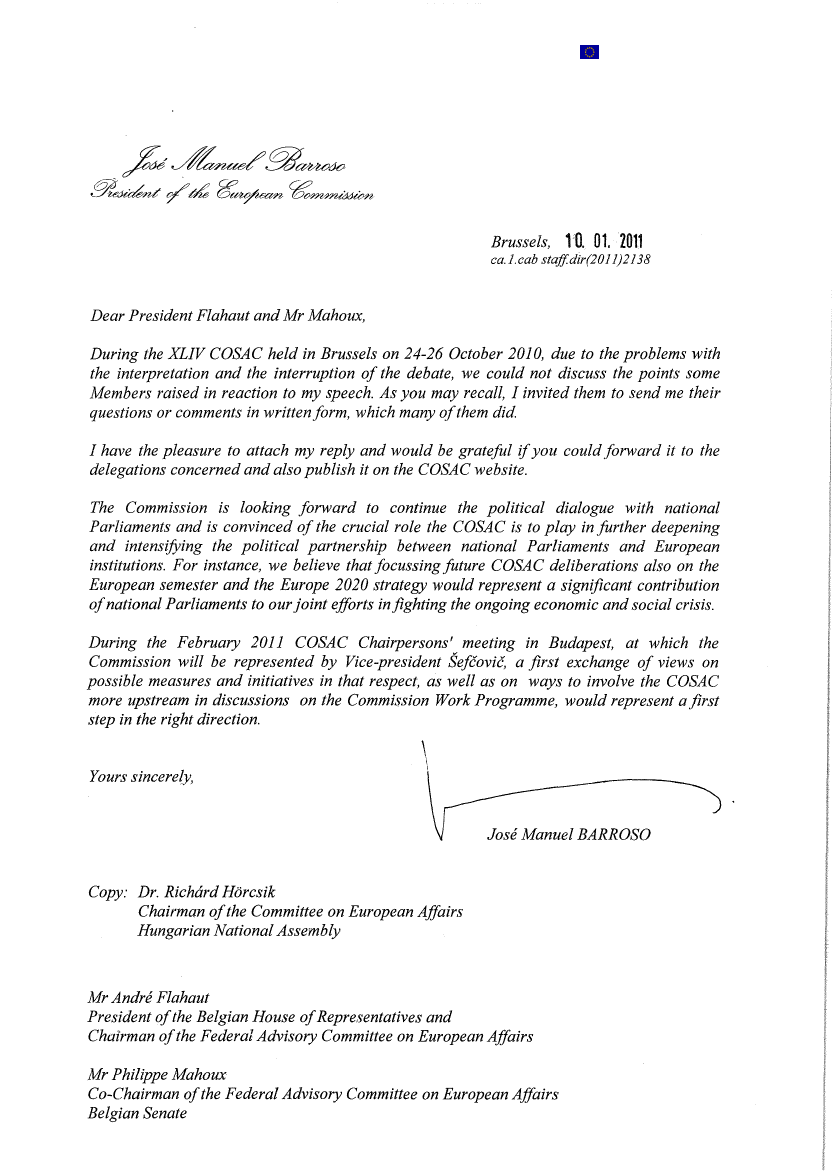
Ref. Ares(2011)23646 - 10/01/2011
<_V*Afe¿zzW¿?"
/яс /M» (3(сЪ<?Аеа?г. V 3e>4
Brussels,
10. 01. 2011
ca.l.cab
staff.dir(2011)2138
Dear President Flahaut and Mr Mahoux,
During the XLIV COSAC held in Brussels on 24-26 October 2010, due to the problems with
the interpretation and the interruption of the debate, we could not discuss the points some
Members raised in reaction to my speech. As you may recall, I invited them to send me their
questions or comments in written form, which many of them did.
I have the pleasure to attach my reply and would be grateful if you could forward it to the
delegations concerned and also publish it on the COSAC website.
The Commission is looking forward to continue the political dialogue with national
Parliaments and is convinced of the crucial role the COSAC is to play in further deepening
and intensifying the political partnership between national Parliaments and European
institutions. For instance, we believe that focussing future COSAC deliberations also on the
European semester and the Europe 2020 strategy would represent a significant contribution
of national Parliaments to our joint efforts infighting the ongoing economic and social crisis.
During the February 2011 COSAC Chairpersons' meeting in Budapest, at which the
Commission will be represented by V ice-president
Sefčovič, a first exchange of views on
possible measures and initiatives in that respect, as well as on ways to involve the COSAC
more upstream in discussions on the Commission Work Programme, would represent a first
step in the right direction.
Yours sincerely,
José Manuel BARROSO
Copy: Dr. Richard Höresik
Chairman of the Committee on European Affairs
Hungarian National Assembly
Mr André Flahaut
President of the Belgian House of Representatives and
Chairman of the Federal Advisory Committee on European Affairs
Mr Philippe Mahoux
Co-Chairman of the Federal Advisory Committee on European Affairs
Belgian Senate